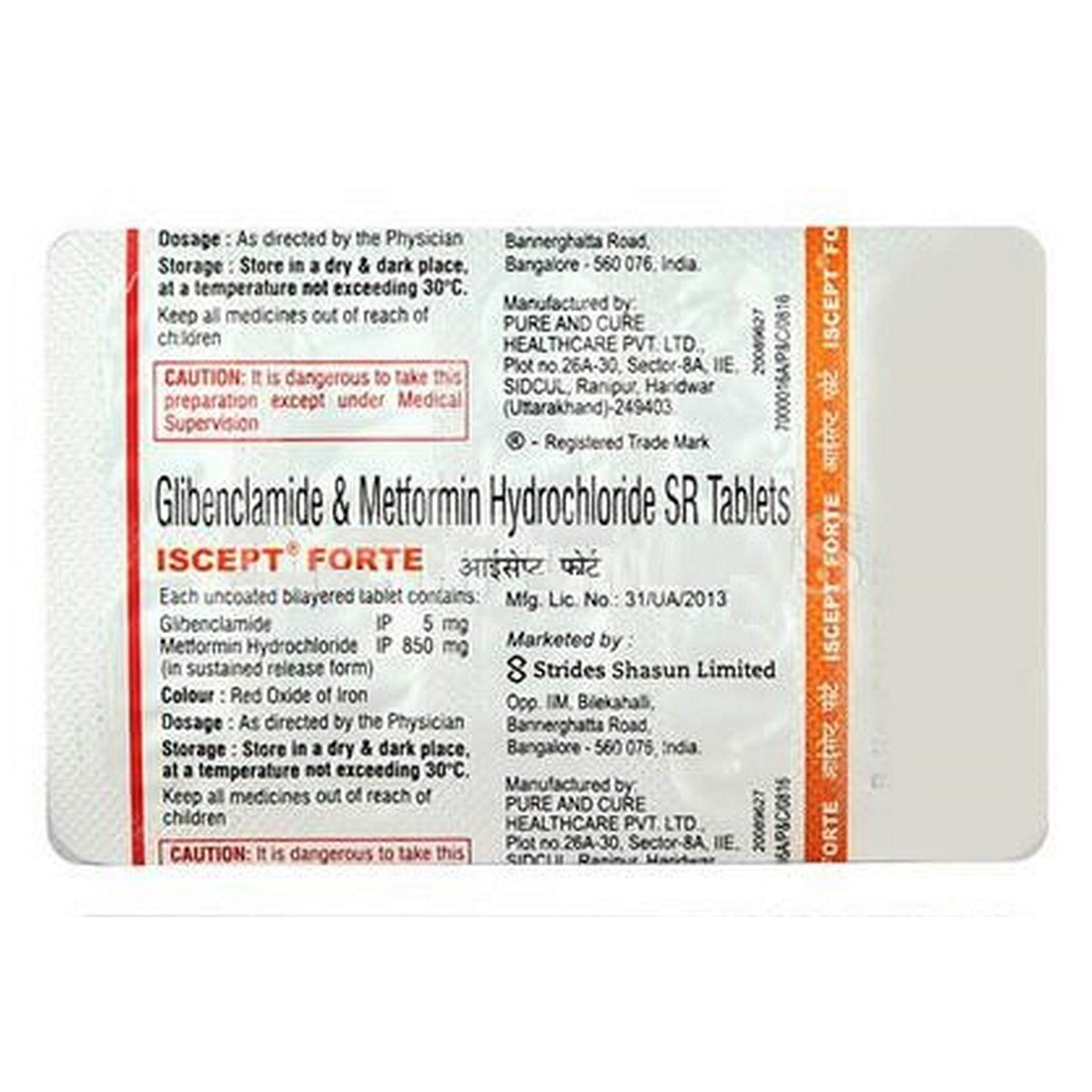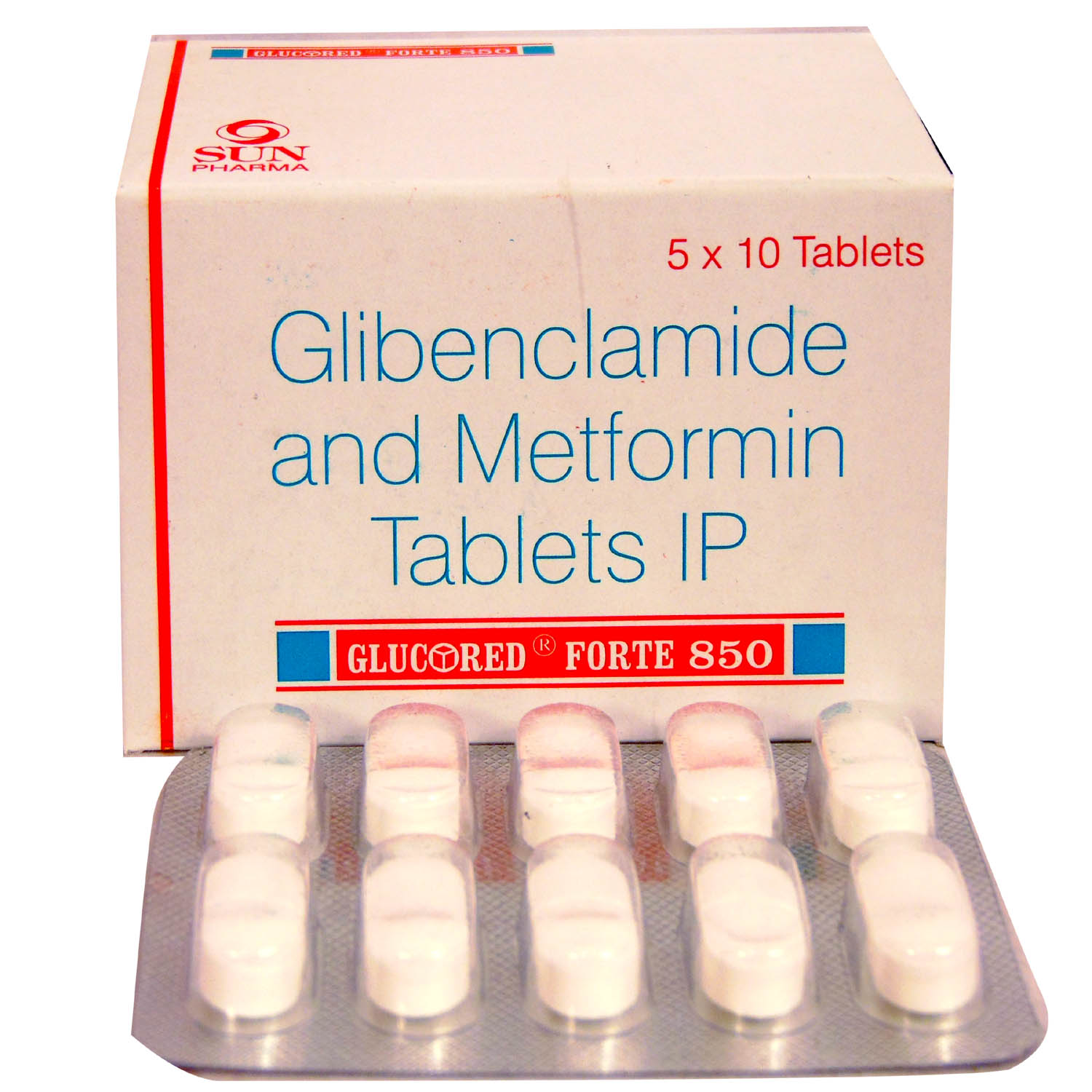Bencomet-Plus Tablet
MRP ₹40
(Inclusive of all Taxes)
₹6.0 Cashback (15%)
Provide Delivery Location
Online payment accepted
 Prescription drug
Prescription drugWhats That
Composition :
Manufacturer/Marketer :
Consume Type :
Expires on or after :
Return Policy :
About Bencomet-Plus Tablet
Bencomet-Plus Tablet belongs to the group of medications called ‘antidiabetic agents’ used in treating Type 2 diabetes mellitus. Type 2 diabetes is a chronic (long-lasting) condition that affects the way our body processes glucose. People with type 2 diabetes either do not produce enough insulin, or the insulin produced cannot perform its function in the body (insulin resistance).
Bencomet-Plus Tablet contains Metformin and Glibenclamide. Metformin works by reducing the sugar production by cells in the liver and delays sugar absorption from the intestines. Glibenclamide works by stimulating beta cells in the pancreas that produce insulin. Thus, insulin helps to remove sugar from the blood.
Take Bencomet-Plus Tablet as prescribed by your doctor. You are advised to take Bencomet-Plus Tablet for as long as your doctor has prescribed it based on your medical condition. Sometimes, you may experience stomach pain, nausea, diarrhoea, vomiting, headache or low blood sugar. Most of these side effects of Bencomet-Plus Tablet do not require medical attention and gradually resolve over time. However, if the side effects persist or worsen, please consult your doctor.
Do not consume if you are allergic to any components in the Bencomet-Plus Tablet. Bencomet-Plus Tablet is not recommended for children. If you are pregnant or planning for pregnancy, please inform your doctor before taking Bencomet-Plus Tablet. Bencomet-Plus Tablet should be used with caution in elderly patients. Avoid alcohol consumption with Bencomet-Plus Tablet as it may increase the risk of lactic acidosis (accumulation of lactic acid in the body). Drive only if you are alert after taking Bencomet-Plus Tablet.
Uses of Bencomet-Plus Tablet
Directions for Use
Key Benefits
Bencomet-Plus Tablet contains Metformin and Glibenclamide. Metformin works by reducing the sugar production by cells in the liver and delays sugar absorption from the intestines. Glibenclamide works by stimulating beta cells in the pancreas that produce insulin. Thus, insulin helps to remove sugar from the blood. Together Bencomet-Plus Tablet decreases the elevated blood sugar level after the meal along with the recommended diet and exercise.
Storage
Drug Warnings
Do not take Bencomet-Plus Tablet if you are allergic to metformin, glibenclamide or other contents. Bencomet-Plus Tablet may cause ‘lactic acidosis’ (buildup of lactic acid in the blood), characterized by abdominal pain, muscle cramps, vomiting, severe fatigue, and difficulty breathing. It is a life-threatening condition that requires immediate medical attention. Inform your doctor if you have any severe liver or kidney problems, as their normal functioning is required to eliminate excess lactic acid from the body. Do not consume excess alcohol, as it increases the risk of lactic acidosis. Inform your doctor if you have any hormonal problems, infectious diseases, or glucose-6-phosphate dehydrogenase - G6PD deficiency (an inherited condition that causes the breakdown of red blood cells).
Diet & Lifestyle Advise
- Prefer eating a meal that contains plenty of vegetables, fruits and whole grains. Opt for non-fat dairy products and lean meats.
- Eat at regular intervals. Do not take a long gap between a meal or snack.
- Monitor your blood glucose levels regularly as advised by your doctor.
- Keep a check on your weight. Shed excess weight by exercising regularly.
- Do not take stress as it shows the effect on blood sugar levels.
- Quit smoking and limit alcohol intake.
Side Effects of Bencomet-Plus Tablet
- Nausea (feeling sick)
- Vomiting (falling sick)
- Diarrhoea
- Stomach ache
- Loss of appetite
Habit Forming
Therapeutic Class
All Substitutes & Brand Comparisons
RX
Out of StockDilept 5mg/850mg Tablet
₹29.9
(₹2.69 per unit)
25% CHEAPERRX
Out of StockGlibamet 5mg/850mg Tablet
Remedy Life Sciences Pvt Ltd
₹40
(₹3.6 per unit)
RX
Glibamet Tablet 10's
Remedy Life Sciences Pvt Ltd
₹41
(₹4.1 per unit)
13% COSTLIER
FAQs
Drug-Drug Interactions Checker List
- MICONAZOLE
- RITODRINE
- SALBUTAMOL
- BOSENTAN
- PHENYLBUTAZONE
- FLUCONAZOLE
- CHLORPROMAZINE
- DESMOPRESSIN
- DANAZOL
Special Advise
- Bencomet-Plus Tablet shows optimum effects when you follow healthy lifestyle changes like weight loss, regular exercise, healthy diet, etc.
Disease/Condition Glossary
Type 2 diabetes mellitus: Type 2 diabetes mellitus is a chronic condition in which blood glucose levels are elevated in the body. Insulin is responsible for the utilization of glucose by the cells. In type 2 diabetes, the body cells do not respond to insulin or in later stages, your body may not produce enough insulin. Symptoms include excessive thirst, excessive hunger, fatigue, increased appetite and dry mouth. If not properly treated, this condition may worsen over time and cause toxic effects.

Have a query?
Alcohol
Safe if prescribed
Alcohol may increase the risk of side-effects.
Pregnancy
Consult your doctor
Bencomet-Plus Tablet should be used with caution only if prescribed by a doctor in pregnant women as it may cause toxic effects to the fetus.
Breast Feeding
Consult your doctor
Breastfeeding mothers should not take Bencomet-Plus Tablet unless prescribed by your doctor.
Driving
Safe if prescribed
Bencomet-Plus Tablet may cause vision problems. So, it is not recommended to drive if your vision is blurred while using Bencomet-Plus Tablet.
Liver
Consult your doctor
Bencomet-Plus Tablet should be used with caution in patients with liver diseases. Dose adjustments may be necessary.
Kidney
Consult your doctor
Bencomet-Plus Tablet should be used with caution in patients with severe kidney impairment. Consult your doctor for further advice.
Children
Safe if prescribed
Bencomet-Plus Tablet is not recommended for use in children below 12 years of age.









